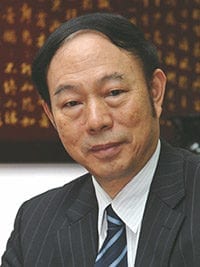
By Andrew Cohen
Last year marked the first in which Chinese investment in the United States—heavily weighted toward technology—exceeded U.S. investment in China. With companies in each country increasingly seeking joint ventures in the other, intellectual property (IP) issues that lie at the core of these investments have taken on even greater importance.
All of which made Berkeley Law’s annual U.S.-China IP Conference (October 8-9 at the Claremont Hotel) more timely than ever.
“China has emerged as a country you have to deal with in any IP strategy,” said Jim Dempsey, executive director of the Berkeley Center for Law & Technology (BCLT) and one of the conference’s chief organizers. “Companies with aspirations of being globally competitive must take into account Chinese patent protection. Even if your business or invention doesn’t appear to be global, your patent strategy must be.”
A joint effort between BCLT, Loyola Law School of Los Angeles, and Renmin University of China Law School, the conference compared developments and trends in China and the U.S. Top scholars, government officials, and practicing lawyers from both countries examined such topics as U.S.-China film co-production, new trends and legal issues in transnational technology investment, and cross-border IP enforcement.
“This conference characterizes Berkeley Law’s leadership in promoting, understanding, and developing IP law from a global perspective,” Dempsey said. “Everyone has an eye on what’s going on in China, and with our location on the Pacific Rim and next to Silicon Valley, we’re well-suited to put this kind of event together.”
Going global
Ranked first in the nation 16 of the past 18 years, Berkeley Law’s IP program is ramping up efforts to forge more global partnerships. The conference signals a deepening relationship with Renmin University, one of a growing number of interactions between Berkeley Law and academic institutions and legal organizations in Asia.
Dean Sujit Choudhry spent two weeks in Asia in June, visiting Shanghai, Beijing, Tokyo, Taipei, Seoul, and Hong Kong. Joined by Dempsey and Professor Robert Merges for parts of the trip, Choudhry attended numerous meetings that fueled trans-Pacific programming, engaged alumni, and promoted Berkeley Law to top international students.
One of those students, LL.M. candidate Yunchuan Zhou, has spent 10 years as a Chinese judge—most recently specializing in IP cases. His presentation at the conference tracked the evolution of IP adjudication in China, how each of its three IP courts operates, and the ongoing evolution of those courts.

Zhou said his LL.M. experience with Berkeley Law’s top-rate IP faculty and attending the conference help “expose me to legal thinking and culture that differs from China, enabling me to view problems and potential solutions from a new perspective.”
All-star lineup
Several other leading experts from China were in attendance, including Renmin Law Dean Chuntian Liu, a towering figure in Chinese IP Law.
“This annual event not only promotes communication and collaboration between the U.S. and China in pursuing innovation, creativity, and rule of law, but also builds a solid academic dialogue bridge for their scholars,” Liu said. “The strategic cooperation between UC Berkeley and China Renmin University sets a good example for the mission of modern universities in a global age.”
Prof. Merges discussed the state of U.S. patent law and one of his former students—Google Senior Patent Counsel Duane Valz ’96—examined the role of patent and competition enforcement in cross-border tech transactions. Other notable guests included keynote speaker Stella Li of BYD Motors, a leader in the electric car industry; Maria Strong, deputy director of the U.S. Copyright Office; and Haibo Wang, president of the Chinese Enterprise Research Institute.
“We’re seeing more patents that have inventors from more than one country, and Chinese nationals are among the leaders in this area,” Dempsey said. “It used to be that your innovation was grounded in one country and then you worked to protect it globally. Now, innovation itself is multinational, which makes understanding the global IP legal landscape extremely important.”